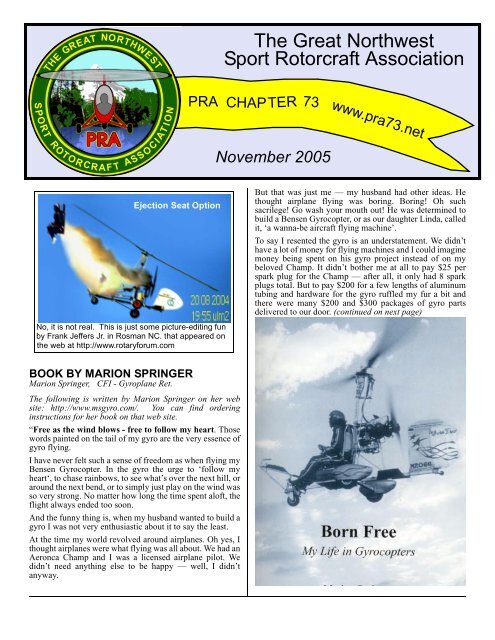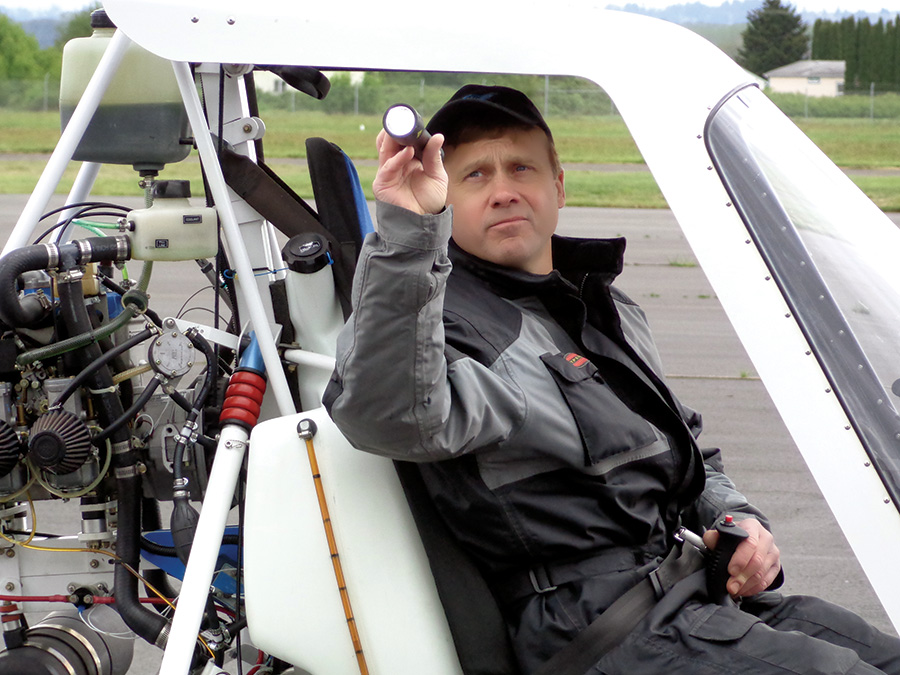The Transport Accident Investigation Commission (TAIC) today released its final report into the July crash and found mast bumping caused an in-flight breakup of the helicopter over Lake Wanaka. Mast bumping occurs when a two-bladed teetering rotor head see-saws (teeters) so much that its inside edge strikes its own main drive shaft (the mast).
- Sport Copter Rotor Blades
- Sport Copter Rotor Blades Removal Tool
- Sport Copter Rotor Blades Blade
- Sport Copter Rotor Blades Parts
- 2 PCS 325mm Universal Glass Fiber Main Rotor Blades Helicopter Blades for Trex 450 Series RC Helicopter - Yellow & Black 4.6 out of 5 stars 11 $10.98 $ 10.
- The rotor blades can slap and hit the propeller. Can't a bar be put over the prop to avoid this? Still not good but couldn't it be survivable? The rotor disk can be put into a negative flow where the rotor blades cannot start again, turning into an unrecoverable situation. Oh crud at 4000' knowing you are going down with no hope.
Taggart GyroBee

MORE INFO: https://en.wikipedia.org/wiki/Taggart_GyroBee
MORE INFO: http://taggart.glg.msu.edu/gyro/gbplans.htm
The Gyrobee has never been a commercial project and, in the past, I made the documentation drawings available on loan, via the mail. This was an increasingly expensive option for me, as I paid for the postage out and, occasionally, the documentation books would not come back and thus required replacement! To avoid this hassle in the future, the Gyrobee documentation is now being made available here on the Internet.
Documentation, not Plans!
Since I have no control over who gets these materials and how they are used, the package is not being promoted as a set of construction plans! It is a documentation package consisting of ~132 pages of text and drawings that shows, it great detail, how we constructed the prototype aircraft, along with updates we plan to incorporate into the next aircraft.
It is as detailed, maybe even more detailed, than most commercial plans, but I am not encouraging anyone to build an actual aircraft from these materials. You can certainly elect to do so if you want to, but the decision is yours to make.
From Wikipedia, the free encyclopedia
The Taggart GyroBee is an American autogyro that was designed by Ralph E. Taggart of Michigan State University and made available as free documentation. The aircraft is also produced in kit form by Star Bee Gyros of Worcester, Massachusetts for amateur construction.

Design And Development
The GyroBee was designed to comply with the US FAR 103 Ultralight Vehicles rules, including the category’s maximum empty weight of 254 lb (115 kg). The aircraft has a standard empty weight of 247 lb (112 kg).
It features a single main rotor, a single-seat open cockpit without a windshield, tricycle landing gear and a twin-cylinder, air-cooled, two-stroke, dual-ignition 45 hp (34 kW) Zanzottera MZ 201 engine in pusher configuration.
The aircraft fuselage is made from bolted-together 6061-T6 aluminum tubing. Its 23 ft (7.0 m) diameter Sport Copter rotor has a chord of 7 in (17.8 cm). With its empty weight of 247 lb (112 kg) and a gross weight of 550 lb (249 kg), it has a useful load of 303 lb (137 kg).
Variants
Taggart Gyro Bee
Plans-built version introduced in 1990.
Star Bee Light
Kit-built version of the GyroBee, produced by Star Bee Gyros. Mounts a 23 ft (7.0 m) Sport Copter rotor, Ivoprop propeller and a 45 hp (34 kW) Zanzottera MZ 201.
Star Bee Total Bee
Kit-built version of the GyroBee, produced by Star Bee Gyros. Mounts a 23 ft (7.0 m) Dragon Wings rotor, Ivoprop propeller and a 60 hp (45 kW) Zanzottera MZ 202.
Midwest Hornet

Free plans-built version, based on the GyroBee.
Specifications (Star Bee Light)
General characteristics
Crew: one
Empty weight: 247 lb (112 kg)
Gross weight: 551 lb (250 kg)
Fuel capacity: 5 U.S. gallons (19 L; 4.2 imp gal)
Powerplant: 1 × Zanzottera MZ 201 twin cylinder, air-cooled, two stroke aircraft engine, 45 hp (34 kW)
Main rotor diameter: 24 ft 0 in (7.31 m)
Propellers: 3-bladed Ivoprop
Performance
Maximum speed: 68 mph; 59 kn (110 km/h)
Cruise speed: 53 mph; 46 kn (85 km/h)
Rate of climb: 590 ft/min (3 m/s)
DO NOT USE GMAIL, HOTMAIL OR YAHOO ACCOUNTS TO ORDER THESE PLANS!
1. Gmail, Hotmail and Yahoo blocks our server, why? we do not know.
2. Gmail, Hotmail and Yahoo limits the size of the download, so we cannot send it manually!
Sport Copter Rotor Blades
3. Gmail, Hotmail and Yahoo blocks our email address or places it in your spam folder – so we have NO WAY of communicating with you or responding to your emails.
Sport Copter Rotor Blades Removal Tool
Sport Copter Rotor Blades Blade
Sport Copter Rotor Blades Parts
